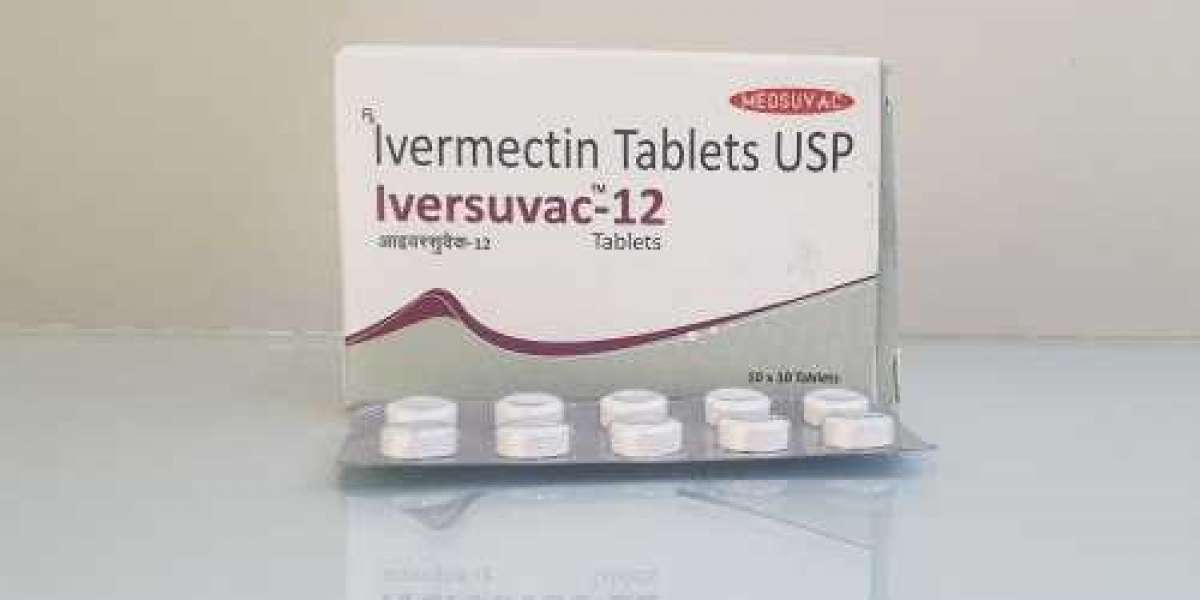What's this medicine?
IVERMECTIN 12mg is an antibacterial. This medication is utilized to manage the symptoms of parasites.
The medicine can be used for different reasons; consult your physician or pharmacist for more information.
Common BRAND NAME(S) Name: Stromectol
What should I mention to my doctor prior to when I start taking this medication?
You should know whether you suffer from any of the following conditions:
- asthma
- Liver disease
- an allergic or unusual reaction to ivermectin, or other drugs, foods dyes, preservatives, or other substances.
- either trying or expecting to become pregnant or trying to get
- breast-feeding
What is the best way to use this medication?
You need to know aboutIvermectin12mg medication along with a cup of drinking water. Follow the instructions on the label of prescription. Use this medication with a full stomach, at least 30 minutes prior to or 2 hours following food. Don't take it with food. You should take your medication regularly. Don't take your medication more frequently than prescribed. Use all your medication according to the directions even if you think you're doing more comfortable. Don't miss doses or stop taking your medication in the earliest time possible.
Discuss with your pediatrician your use for this drug for children. It is possible that special care is required.
Dosage overdose: If you believe you've consumed excessive amounts of the medication, consult a poison control centre or an emergency room immediately.
Please note that this medicine is for you only. Do not share this medication with anyone else.
What happens if I don't remember the dose?
If you have missed the dose, get it as quickly as you are able. If it's getting close for your next dose just take that dose. Don't take more than one or take additional doses.
What are the possible interactions with this medication?
- drugs that can treat or prevent blood clots such as warfarin
This list is not a comprehensive list of the full range of interactions. Inform your health professional an inventory of all drugs, herbs, non-prescription substances, or dietary supplements you consume. Inform your doctor that you drink alcohol, smoke or take illegal drugs. Certain substances may interfere with your medication.
What should I look out for while taking this medication?
Consult your physician or health specialist for a follow-up appointment according to the instructions. You'll need tests to confirm whether the infection has been cleared. You may need retreatment. Consult your physician if symptoms don't improve, or if they become worse.
Keep your hygiene in check to avoid the spread of infection to others. Cleanse your hands, scrub your fingers and shower regularly. Every day , change and wash clothes and linens. Clean toilets frequently and make sure floors are clean.
What side effects could I experience from taking this medication?
These side effects should be reported to your doctor or health care professional immediately. be able to report to your doctor or medical professional as soon as you can:
- allergic reactions such as itching, rash or swelling of the lips, face or tongue
- breathing issues
- Vision changes
- chest pain
- confusion
- eye pain, swelling, redness
- rapid, irregular heart rate
- feeling dizzy, faint
- The fever
- the appearance of blisters, redness peeling or loosening of the skin, which includes the mouth.
- seizures
- Incontrolled urination and diarrhea
- Unusual swelling
- extremely tired or weak
The most common side effects are those that don't require medical attention (report to your physician or health specialist if they persist or cause discomfort):
- constipation, diarrhea
- headache
- Muscle or joint discomfort
- Loss of appetite
- nausea, vomiting
- stomach pain
- tender glands in the neck armpits or the the groin
- The tremor
This list does not cover every possible side effect. Consult your physician for advice from a medical professional regarding adverse effects.
Where should I store my medication?
Keep away from the children's reach.
Store at room temperature below 30 degrees C (86 degrees F). Make sure the container is tightly sealed. Dispose of any medicine that is not used following it expires.
Note: This document is an overview. It is not a complete list of possible details. If you have any concerns about this medicine, consult your pharmacist, doctor or health professional.








